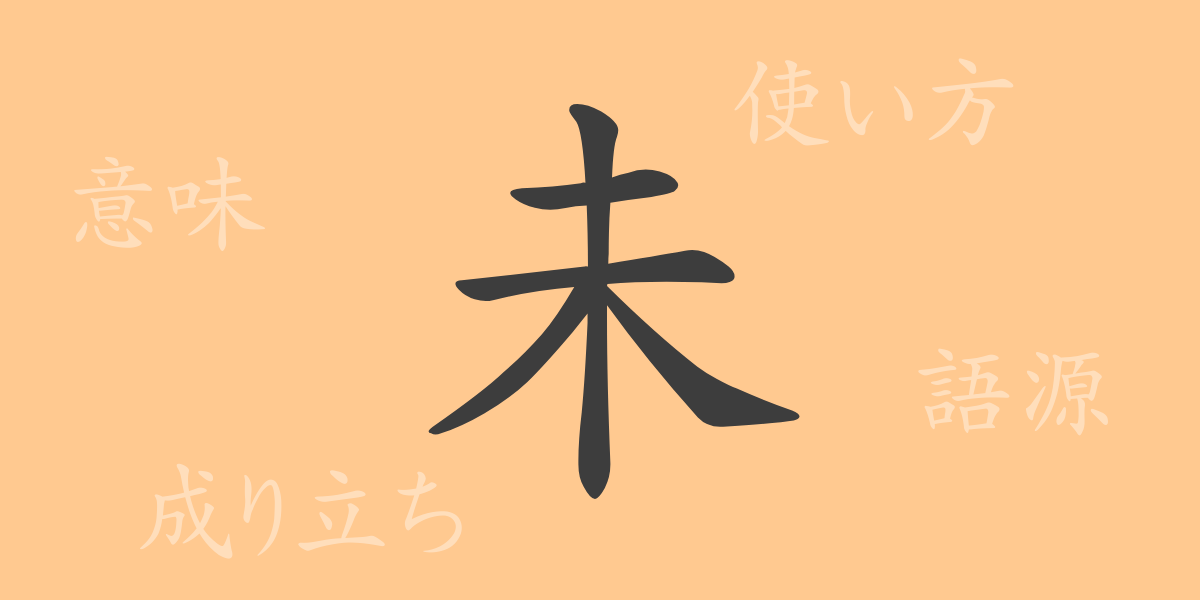Japanese characters each possess their unique beauty and profound meanings. One of the 常用漢字 (jōyō kanji), “未” (mi), is no exception. In this article, we delve into the mystery of “未” (mi), exploring its origins and modern usage. We aim to provide our readers with a detailed introduction to the rich history and culture embodied in the character “未” (mi).
Origins of 未 (mi)
The kanji “未” (mi) traces its origins back to ancient Chinese oracle bone script. Initially, it was used as a pictograph representing the state of tree branches that have not yet fully grown. Over time, it evolved to signify the concept of “not yet” in a temporal sense, and it came to be used to mean future or incomplete. Thus, “未” (mi) symbolizes both time and growth, showcasing its diverse expressive power.
Meaning and Usage of 未 (mi)
The kanji “未” (mi) means “not yet” or “still.” It is used to indicate something that is incomplete or an event that will occur in the future. Additionally, “未” (mi) is one of the twelve zodiac signs, representing the eighth sign, the sheep. In Japanese, “未” (mi) is frequently used in expressions that denote time or situations, underscoring its deep-rooted presence in our daily lives.
Reading, Stroke Count, and Radical of 未 (mi)
Below is the basic information about the kanji “未” (mi).
- Reading: On’yomi (音読み): “ミ” (mi), Kun’yomi (訓読み): “いまだ” (imadā)
- Stroke Count: 5 strokes
- Radical: 木部 (きへん, kihēn)
Idioms, Phrases, and Proverbs Using 未 (mi) and Their Meanings
There are numerous idioms, phrases, and proverbs that include “未” (mi). Here are a few examples with their meanings:
- 未来 (みらい, mirai): A time that has not yet come, the future.
- 未熟 (みじゅく, mijuku): Not yet fully experienced or grown.
- 未定 (みてい, mitei): Not yet decided.
- 未知 (みち, michi): Not yet known.
- 未婚 (みこん, mikon): Not yet married.
- 未曾有 (みぞう, mizō): Unprecedented, never happened before.
- 未遂 (みすい, misui): Attempted but not completed.
These idioms and phrases are frequently used in daily conversations and business contexts, illustrating how the meaning of the kanji “未” (mi) is integrated into our lives.
Conclusion on 未 (mi)
The kanji “未” (mi) holds a wealth of meaning far beyond its simple form. As a symbol of time and potential, this character plays a significant role in our language and is used in many idioms and expressions. Through “未” (mi), which evokes hope for the future and the beauty of incompleteness, we can rediscover the profound depth of the Japanese language.

























